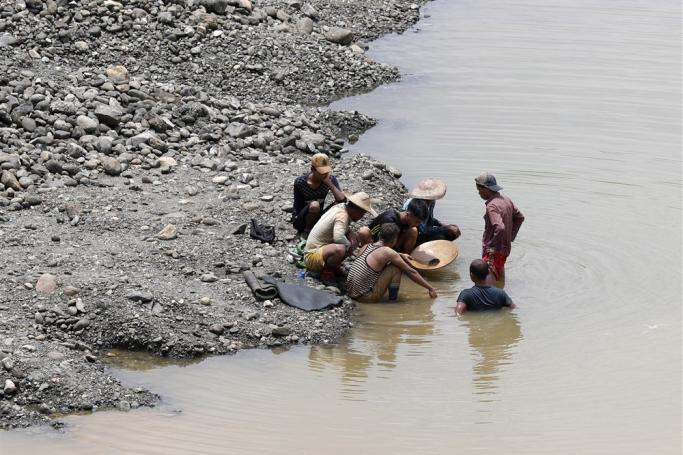Myanmar Mining Watch Network has expressed concerns about the surge in mining operations for natural resources in Myanmar ethnic areas following the military coup.
In a press conference held this week, the environmental organization emphasized the detrimental impact of these activities on the environment and social interests.
With decades of lack of transparency, the natural resource extraction industry in Myanmar has surged under a centralized system with a noticeable absence of law enforcement. This has resulted in a surge of mining activities in ethnic areas like Kachin State, Shan State, Karenni State, and Karen State, where gold, jade, rare earth metal, amber, tin, tungsten and white gold mining activities have witnessed a significant increase.
During the press conference, Mr. Paul, the Network Coordinator of the Myanmar Mining Watch Network, emphasized that the escalated mining activities have placed the livelihoods of millions of people, animals, and entire ecosystems at stake.
"Since the coup d'état,we have witnessed a surge in gold mining at the confluence (Myitsone) of the Maykha and MaliKha rivers. We did research around Myitsone in Kachin. We focused on about six villages. In eastern Shan, we issued a report about rare earth mining,” said Paul.
“Irrawaddy River is the lifeblood of Myanmar. Millions of people and animals depend on it. All ecosystems have been destroyed.”
As per accounts from Kachin residents, there are credible reports of Military Council troops and businessmen actively involved in gold mining operations within Kachin State. The presence of these groups has resulted in adverse effects on education and health, with a particular emphasis on compromised women's safety and a rise in incidents of sexual harassment associated with gold mining. Additionally, the alarming prevalence of drug use, including among children, poses significant risks and hazards to the local population.
Kachin’s Myitsone resident Naw Naw highlighted the detrimental consequences of mining activities, including health consequences.
“There are many consequences. The rivers had significantly changed their courses, leading to the absence of trees near the rivers. [Drinking] water shortage arises. The previously clear water has turned yellow and is no longer suitable for consumption.The people have to depend on the rivers to drink. People have health problems because they have to drink only this water,” said Naw Naw.
"The most common issues caused by gold mining include rampant drug problems, with even children getting involved. When the weather is too cold, some people use drugs to be able to work. Additionally, women living near gold mining areas face extensive sexual harassment. These problems are expected to worsen. When issues arise, the villagers do not know to whom they can ask for help. Despite residents not agreeing with the mining business, they find themselves without the right to voice their complaints."
According to the press conference, there are more than 200 small-scale gold mining companies in Hkambu Village alone in Kachin State.
Furthermore, the rare earth mining activities in eastern Shan State have had a profound impact on nine villages. The mining operations have resulted in the destruction of tea plantations and local vegetable farms, land confiscations, water scarcity, and a surge in health issues, according to the Myanmar Mining Watch Network.
The group said that some ethnic armed organizations are also deeply involved in the mining operations.
The group has called upon the National Unity Consultative Council (NUCC) of the National Unity Government [NUG] to prioritize the establishment of a federal system for managing natural resources, ensuring the rights of ethnic communities are respected. They have further urged the NUCC to blacklist groups that provide financial support for mining activities benefiting the junta's exploitation of natural resources.
Myanmar Mining Watch Network (MMWN) is a network which was established in 2016 in Myitkyina, Kachin State. It was formed by 11 organizations with the purpose advocacy.












